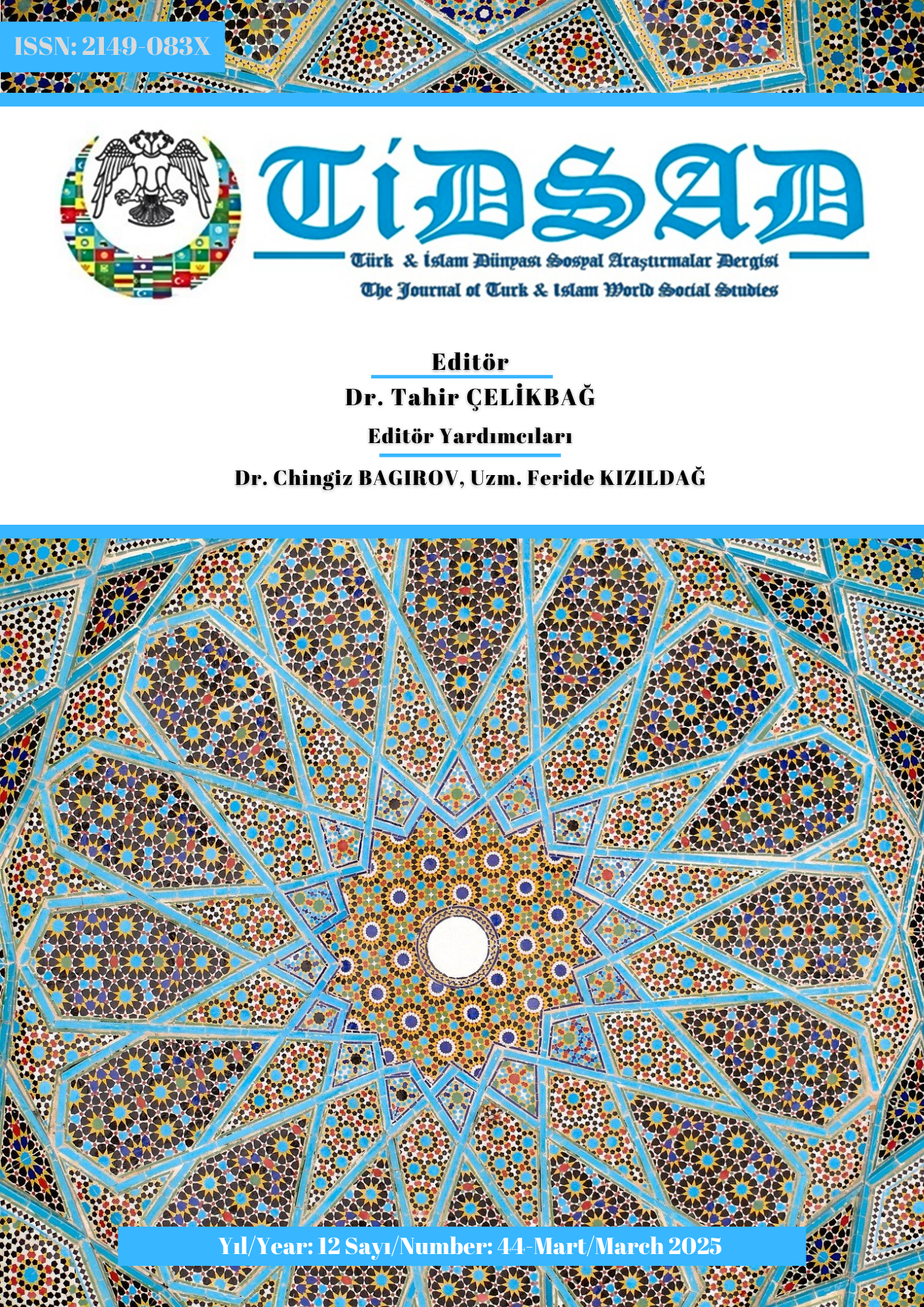Author :
Abstract
Muhammed bin Ömer el-Vâkıdî (ö. 207/747), İslam tarihinin hicri ikinci, milâdî dokuzuncu yüzyılında önemli bir yere sahip olan ilk İslam tarihçilerindendir. Tarih ve hadis alanındaki, özellikle Siyer, megâzî ve fetihler konusunda yazdığı birçok eseriyle bilinmektedir. Bunlar arasında en bilinen eserlerinden biri Fütûhü’ş-Şam’dır. Bu eser, Şam topraklarındaki İslam fetihlerini ele alan önemli bir kaynaktır. Kitap, başka kaynaklarda bulunmayan tarihî rivayetleri içermektedir. Bu rivayetler, Müslümanların Bizans İmparatorluğu’na karşı gerçekleştirdiği fetihler sırasında katıldıkları sefer ve savaşlarla ilgilidir. Örneğin, Mûte ve Yermûk Savaşları gibi olaylar detaylı bir şekilde ele alınır. Eser, savaş yerleri, komutanlar hakkında ayrıntılı bilgiler sunar. Vâkıdî eserinde tâbiin ve bazı sahâbîlerden naklettiği rivayetlere dayanmaktadır. Ancak bazı araştırmacılar, bu kitabın Vakidi’ye ait olduğuna dair şüpheler ileri sürmekte ve eserin birçok zayıf rivayet içerdiğini hem sözlü hem de yazılı kaynaklardan aktarılan bilgilerin güvenilirliğine dair endişeler olduğunu belirtmektedir. Onlara göre, bu eser, tarihî olayları derinlemesine incelemektense daha çok ansiklopedik bir bakış açısıyla belgelendirmeye çalışmıştır. Bu çalışma, bu meseleyi ele alarak, tarihçilerin eser hakkındaki görüşlerini incelemekte, Vakidi’nin diğer kitaplarıyla karşılaştırmalı analizler yaparak eserin Vakidi’ye ait olup olmadığı konusunda yeni bir yaklaşım sunmayı amaçlamaktadır.
Keywords
Abstract
Muhammad ibn Umar al-Waqidi (d. 207/747) is considered one of the earliest prominent Muslim historians of the 2nd Hijri century and 9th CE. He gained great renown in the fields of history and hadith, and authored many works in the areas of biography, military campaigns, and conquests, the most famous of which is his book Futuh al-Sham. This historical work covers the events of the Islamic conquests in the Levant, containing unique historical narratives that cannot be found in other sources. The book discusses in detail the battles and conflicts that Muslims fought against the Byzantine Empire during the conquest of the Levant, such as the Battle of Mu’tah, the Battle of Yarmouk, and other significant events. It provides an accurate description of battle locations, military leaders, and relies on reports transmitted by the Tabi‘un (followers of the companions) and some companions themselves. However, some scholars question the authenticity of attributing this book to al-Waqidi, arguing that it contains numerous weak narratives, both oral and from written sources. They believe that the book focuses more on documenting events in an encyclopedic manner rather than verifying the authenticity of the historical accounts. This research discusses this issue by studying the views of historians about the book and analyzing its narratives, comparing them with al-Waqidi’s other works, and offering a new approach to this issue that contributes to understanding the credibility of the book’s attribution to al-Waqidi.





